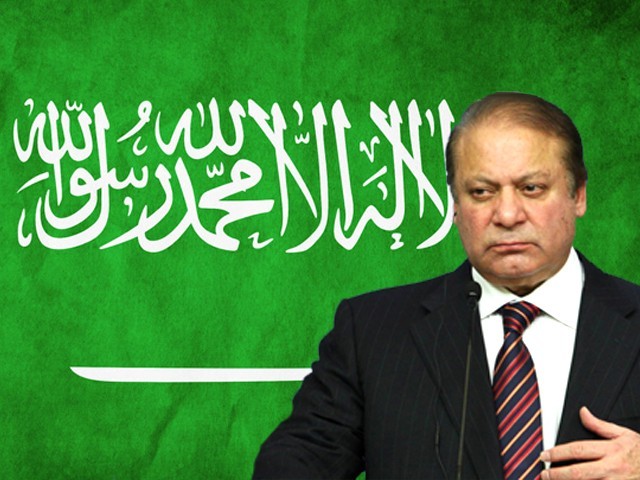Pakistan can’t afford another war to aid House of Saud – Farheen Rizvi
According to Pakistan foreign office spokesperson, Tasnim Aslam, the terrror-torn nation is considering taking part in Saudi’s offensive against Yemeni rebels – the Houthis. “Pakistan is examining the matter,” Aslam said, recently. The questions that arise here are, considering its internal security situation and economic instability, should Pakistan take part in such regional conflict? Or should it be more concerned about improving its regional equation with Afghanistan? Should not Pakistan improve its trade relations with India, which can provide a big economic opportunity to the country, rather than depending on foreign aid?
Iran’s allies, which include Shiite militia fighting the Islamic State of Iraq and Syria (ISIS) and the Houthis in Yemen, are gaining strength around Saudi Arabia’s borders. In Syria, the Iran-backed Bashar Al Assad regime is still at the forefront – in the driving seat in Damascus as it were – despite all the international and regional efforts to topple it. The situation in Yemen is its civil war driven by sectarian lines. Saudi military action is not backed by any United Nation resolution or support. In 2003, former Pakistan Army Chief and President Musharraf declined the US’ request of sending Pakistani troops to join their war in Iraq. “We cannot be part of any occupational force, we must operation under some international body,” a foreign official of Pakistan had said at the time.
Saudi Arabia has always had comfortable relations with Pakistan when the Sharifs are in power. The house of Nawaz has reciprocated affirmatively to any request from the House of Saud. The Pakistani PM could not have survived if the House of Saud had not taken personal interest in saving him from Musharraf’s coup d’état in 1999. Traditionally, Sharif’s vote bank has been the conservative middle class, and the small and large traders of Punjab. In the 2010 by-election of Punjab, Nawaz’s provincial former law minister, Rana Sanaullah was seen campaigning alongside Ahmad Ludhiyanvi, the head of banned sectarian outfit, Lushkere Jhangvi (LeJ). Such banned sectarian outfits like LeJ and Sipahe Sahaba Pakistan (SSP) are among those organisations, which flourished after Saudi oil money was pumped into Afghan war backed by former Pakistani dictator and Army Chief Zia ul Haq.
Nawaz Sharif launched his political career under the guidance of General Zia’s right hand man and the then governor of Punjab, General Ghulam Jilani Khan. Sharif was appointed as the provisional finance minister during Zia’s regime. Houthis’ insurgency started in 2004, when the cleric and head of Zaydi Shiite sect, Hussien Al-Houthi was killed by the then government.
According to President Saleh’s government, “Mr Al-Houthi’s rebels want to overthrow the government and impose Shiite religious law in the country.” The Houthis say they are defending their community against discrimination and what they call aggressive acts by the government. After the Afghan war, when Kabul was under the Taliban rule and Nawaz Sharif was serving as prime minister in Islamabad, both Afghanistan and Pakistan witnessed the further rapture of sectarian fault line in both countries. Post the war, Pakistan became a fertile land for the Saudi and Iran proxy war through banned sectarian outfits like SSP, LeJ and Sipahe Muhammad Pakistan (SMP).
On the other hand, when it comes to the Yemen crisis, according to Bruce Riediel in Al-Monitor, the Houthis are backed by Iran. The Iran-backed Shiite rebels deployed on the border close to Riyadh have sent shockwaves throughout Saudi Arabia. With sectarian dominance, another one of the kingdom’s fears is that if Aden, through which all the oil traffic of the Suez Canal passes, falls into the hands of Iran-backed militia, that would stop the oil traffic.
Knowing the long history of proxy wars of Saudi Arabia in the region, especially in Iraq and Syria, Pakistan should distance itself from any direct or indirect military support to the conflict, which is based on the Sunni-Shiite divide. While the prime minister has a personal relationship with House of Saud, Pakistan’s economy also depends on remittances sent by Pakistani expatriates working in the kingdom. Since long, Pakistan has been suffering from an energy crisis, especially in Punjab, and the House of Saud can help the Sharif government by supplying the much needed cheaper oil.
As recent as in 2014, Saudi Arabia granted $1.5 billion-worth economic assistance to Pakistan in exchange of retired Army officers who could serve in Bahrain as an “anti-riot” force to suppress the popular Bahraini Shiite uprising. Keeping in mind what Pakistan has gone through in the last thirty years – witnessing an increase in religious and sectarian violence – the country should balance its foreign policy with Riyadh and Tehran and not place its eggs in one basket. As mentioned earlier, Yemen is important for Saudi’s oil traffic, but is of no interest to Pakistan.
Owing to its fragile internal security and economic conditions, Pakistan should use its diplomacy to improve ties with neighbouring countries, especially Afghanistan and India, instead of dragging itself in the Middle East conflict. It is time for Pakistan to focus on eradicating the growing radicalisation within its society and improve its human development index.
Source:

